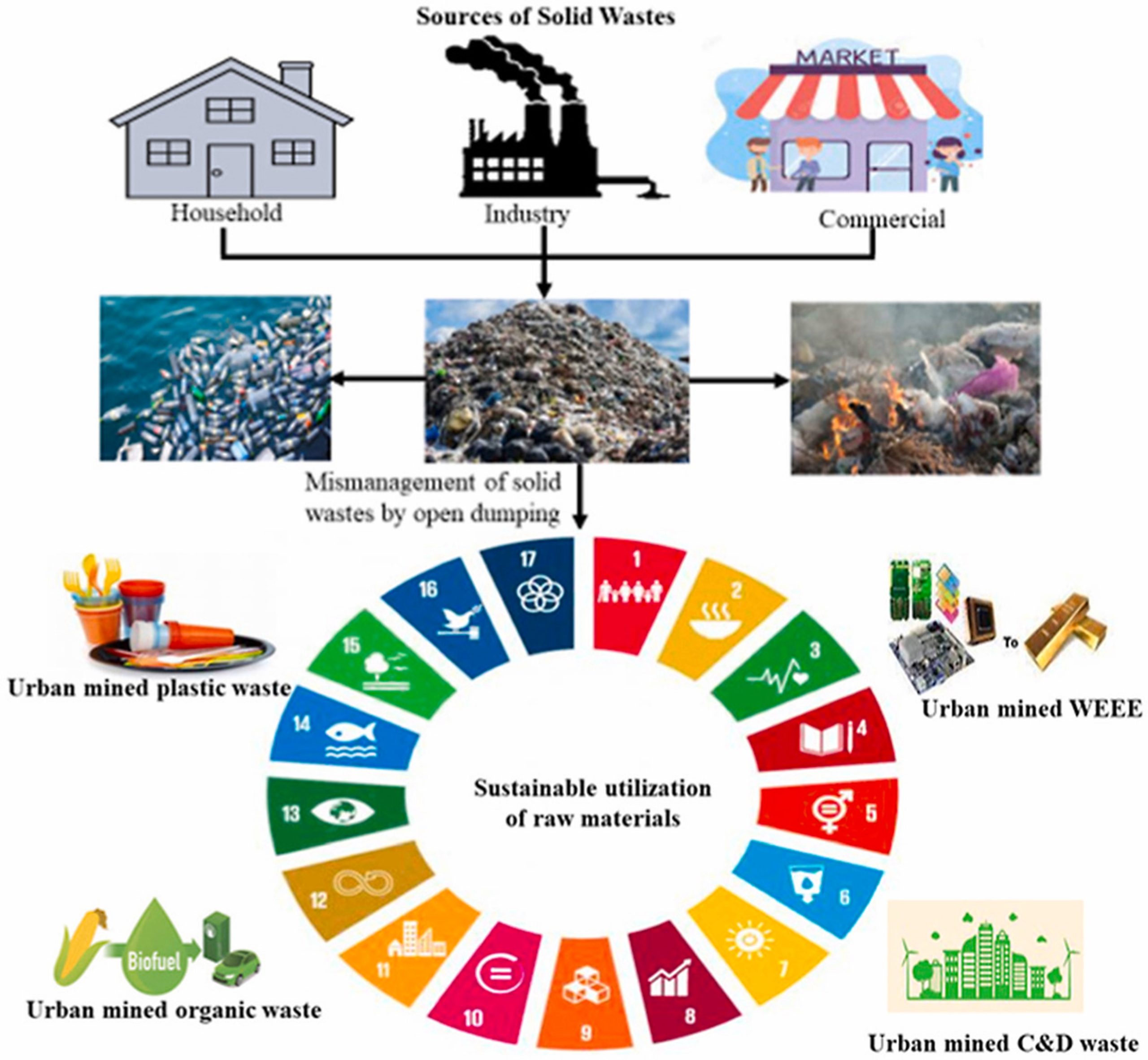 Dr Pankaj Pathak from the Department of Environmental Science has been keenly involved in research studies involving solid waste management and the effective conversion of wastes to energy. Her latest research publication Sustainable approach for valorization of solid wastes as a secondary resource through urban mining proposes an enhanced solution for the sustainable management of different types of solid wastes. It was published in the Journal of Environmental Management with an impact factor 8.98.
Dr Pankaj Pathak from the Department of Environmental Science has been keenly involved in research studies involving solid waste management and the effective conversion of wastes to energy. Her latest research publication Sustainable approach for valorization of solid wastes as a secondary resource through urban mining proposes an enhanced solution for the sustainable management of different types of solid wastes. It was published in the Journal of Environmental Management with an impact factor 8.98.
In this paper, sustainable alternative valorisation techniques that aid in maximum recovery from waste materials, and associated challenges and limitations have been highlighted. These solid wastes mainly include construction and demolition wastes, organic food wastes, plastic, and WEEE (Waste electrical and electronic equipment) from various sources. In order to overcome these challenges, a sustainable circular model is recommended in this paper that will help minimise the negative environmental impacts, maximise the life cycle of material, reduce the consumption of fossil fuels, and thereby sustainably manage waste. Implementation of this recommendation can help in achieving the target of sustainable development goals (SDGs).
The article was published in collaboration with her PhD Scholar MSSR Tejaswini, and D.K. Gupta, Member Secretary in the Hazardous Substance Management Division in the Ministry of Environment, Forest and Climate Change, New Delhi.
Abstract
The incessant population has increased the production and consumption of plastics, paper, metals, and organic materials, which are discarded as solid waste after their end of life. The accumulation of these wastes has created growing concerns all over the world. However, conventional methods of solid waste management i.e., direct combustion and landfilling have caused several negative impacts on the environment (releasing toxic chemicals and greenhouse gases, huge land use) besides affecting human health. Therefore, it is requisite to determine sustainable alternative technologies that not only help in mitigating environmental issues but also increase the economic value of the discarded solid wastes. This process is known as urban mining where waste is converted into secondary resources and thereby conserves the natural primary resources. Thus, this review highlights the technological advancements in the valorisation process of discarded wastes and their sustainable utilization. We also discussed several limitations of the existing urban mining processes and further the feasibility of valorisation techniques was critically analysed from a techno-economical perspective. This paper recommends a novel sustainable model based on the circular economy concept, where waste is urban mined and recovered as a secondary resource to support the united nations sustainable development goals (SDGs). The implementation of this model will ultimately help the developing countries to achieve the target of SDGs 11, 12, and 14.

